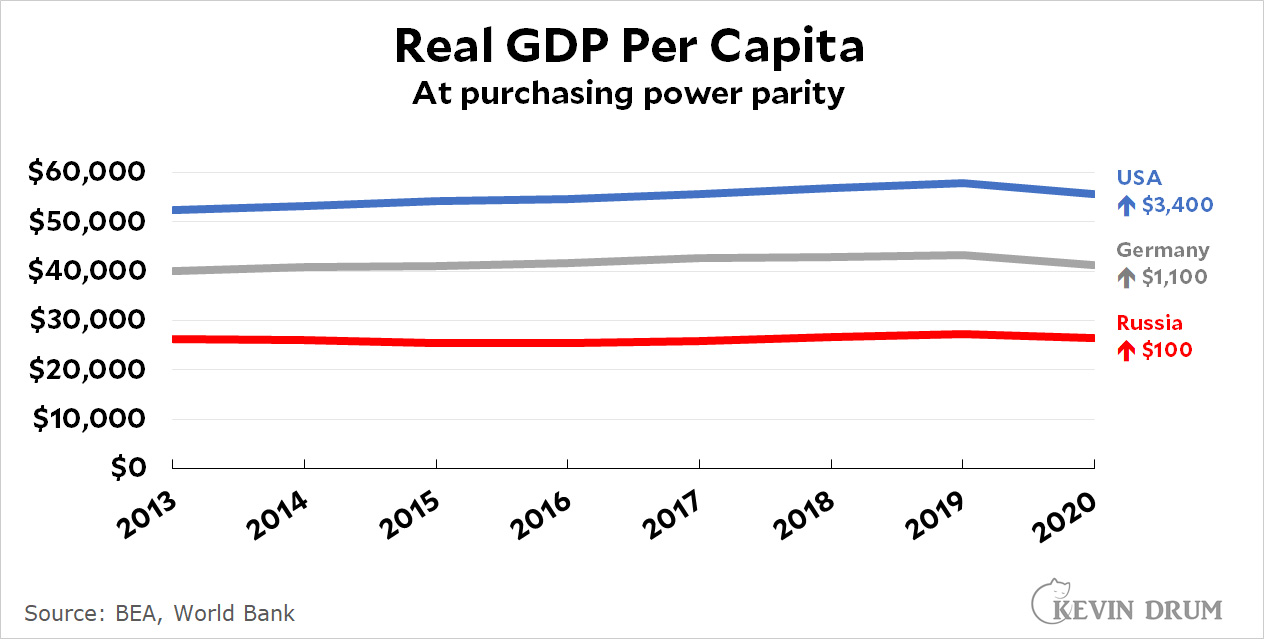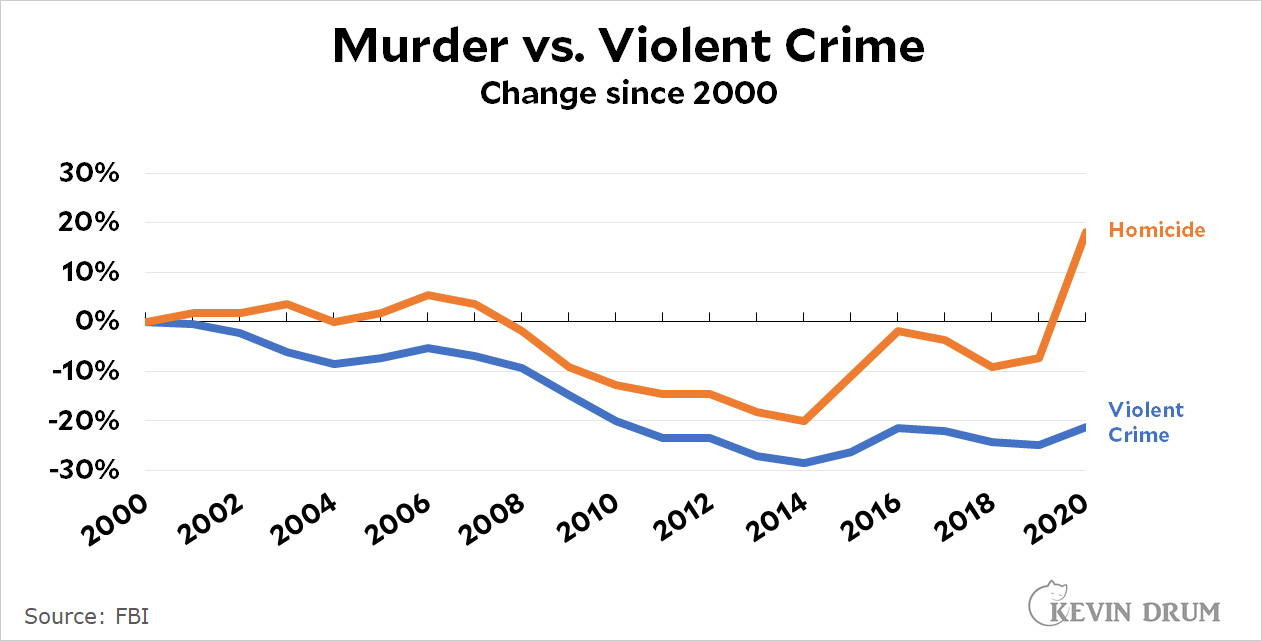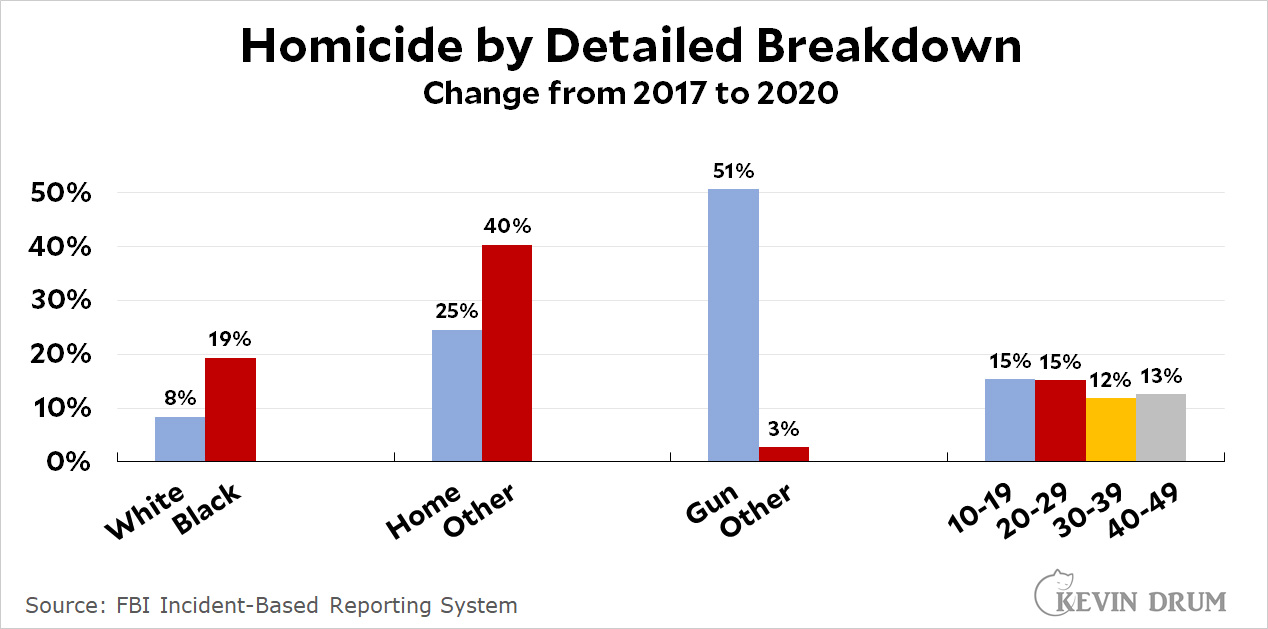There's a fundamental problem with our campaign to get people to wear masks. It's pretty obvious, but here it is:
Socrates: Our greatest healers and physicians are united in urging us to wear masks in order to fight the plague that runs rampant among us. Do you believe their advice to be sound?
Glaucon: Why yes.
Socrates: And what evidence do they offer that you find so persuasive?
Glaucon: It is obvious that masks reduce the expulsion of bad airs from breathing and coughing. If I am suffering from the plague—but still out in the agora because I am not yet feeling any ill effects—it diminishes the number of malignant corpuscles that I introduce into the world.
Socrates: So when you wear a mask, you do it to help other people, not yourself?
Glaucon: That is so. It is not perfect, but it is still beneficent to the good health of Athens.
Socrates: And you consider this a virtuous act.
Glaucon: Indeed I do. A respect for the good of society is one of the highest virtues.
Socrates: Quite so. But you'll admit that not everyone thinks as you do.
Glaucon: Unhappily, all my experience among men teaches me that you are right.
Socrates: So on the one side, we have your fellow citizens of virtue. They are the most likely to heed the advice of our physicians, are they not?
Glaucon: I cannot disagree.
Socrates: And being virtuous, they have probably already visited a physician and procured for themselves a potion that protects against the plague?
Glaucon: Indeed, I myself have done so. I believe it was called a "vaccine."
Socrates: And what does this "vaccine" accomplish?
Glaucon: It greatly reduces the chance of catching the plague.
Socrates: And therefore reduces the chance of expelling plague particles into the world.
Glaucon: I would think so. It seems a matter of simple logic.
 Socrates: Now let us attend to those who are less virtuous than Glaucon. Have they procured this vaccine?
Socrates: Now let us attend to those who are less virtuous than Glaucon. Have they procured this vaccine?
Glaucon: Lamentably, many have not. They are known as anti-vaxxers.
Socrates: And how do they feel about masks?
Glaucon: They hate them with a holy passion.
Socrates: Allow me to summarize. On the one hand, we have the virtuous, who are vaccinated and pose little threat. They are also the ones most likely to heed warnings to wear masks.
Glaucon: Yes.
Socrates: On the other hand, we have the non-virtuous, who are unvaccinated and pose a great threat. Yet they are the ones least likely to heed mask warnings.
Glaucon: It is sadly so.
Socrates: And what does this tell us about the effectiveness of our great oratory in favor of mask wearing?
Glaucon: That it is most effective among those who need it least, and least effective among those who need it most.
Socrates: Quite so. As Aristotle taught us, persuasion is an emotional appeal, not a logical one.
Glaucon: Aristotle has not been born yet.
Socrates: Ah, you are right, my young apprentice. My apologies.
Glaucon: But this puts me in mind of something.
Socrates: I thought it might. Go on.
Glaucon: Surely persuasion is not our only possible tool?
Socrates: Of course not. What other means are commonly used in a democratic polis?
Glaucon: Why, the underlying authority of any state is based on the use of force. Indeed, the legitimate use of force is normally restricted to the state.
Socrates: And is this applicable to our present predicament?
Glaucon: Of course. It has long been agreed that a pandemic justifies the most vigorous application of state power. The ekklesia could, in perfect justice, simply mandate both vaccines and masks.
Socrates: And yet they don't.
Glaucon: There are some limited mandates. But I concede the point. Without mandates, mere campaigns to increase mask wearing are probably close to useless.
Socrates: As the Byzantines learned to their regret.
Glaucon: Another anachronism.
Socrates: Sorry.









